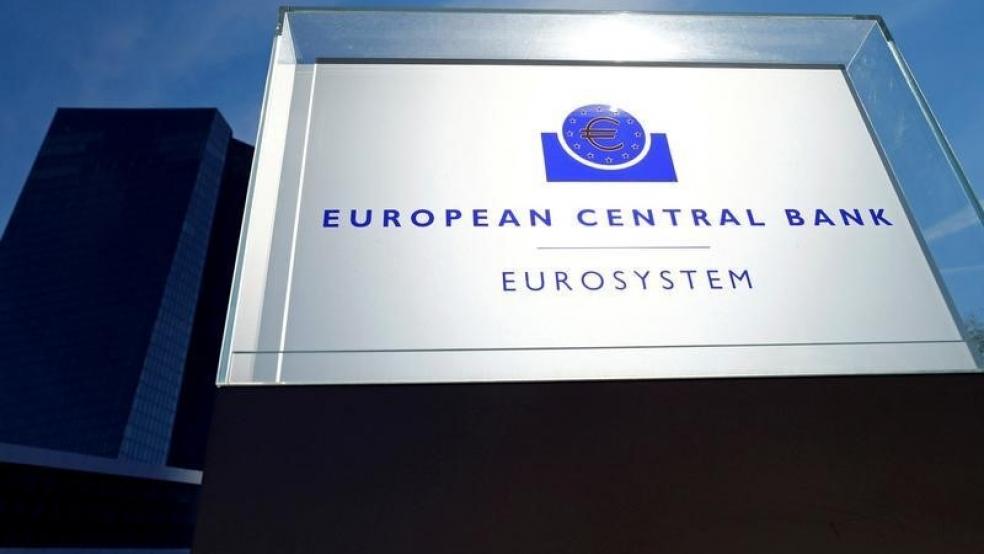BERLIN (Reuters) - German inflation slowed unexpectedly in January, driven by a weaker rise in energy prices, data showed on Tuesday, lending support to the European Central Bank's cautious approach to reducing its unprecedented monetary stimulus only gradually.
ECB chief Mario Draghi last week pushed back on rate hike fantasies, arguing there was almost no chance of a move this year, even as some investors were betting on a rise as early as December. Peter Praet, the ECB's chief economist, also struck a cautious tone on Monday when he said the central bank would only stop pumping cash into the euro zone economy when it was confident that inflation was heading toward its target of just below 2 percent even without its extra help.In a sign that price pressures remain moderate even in Germany's booming economy, the euro zone's largest, consumer price inflation, harmonized to compare with other euro zone countries, slowed to 1.4 percent on the year in January, preliminary data from the Federal Statistics Office showed.That was below the consensus forecast in a Reuters poll of analysts who had predicted an unchanged reading of 1.6 percent.For the month, consumer prices fell by 1.0 percent, below the 0.7 percent fall expected by analysts.Lower energy inflation made the largest contribution to the weaker headline figure while food inflation picked up, the office said."Over the next few months, inflation rates will remain volatile," LBBW Research chief economist Uwe Burkert said, adding that the German inflation rate was likely to surpass the two percent threshold in the summer months."However, overall price pressures remain low," Burkert said. He pointed to increased competition among companies due to globalization and digitization which made it difficult to pass on rising production costs to clients through higher prices.WAGE DISPUTEThe statistics office did not provide a preliminary reading for German core inflation.But Commerzbank analyst Marco Wagner said that core inflation probably remained unchanged in January and that he expected this key measure to rise in the coming months."This is due to the tough wage negotiations in the industrial sector that, from our point of view, will help to end years of wage restraint," Wagner added.Germany's biggest union, IG Metall, is demanding more flexible working hours and an inflation-busting 6 percent pay hike this year for about 3.9 million workers.The German government expects national consumer price inflation (CPI) to slow to 1.7 percent this year from 1.8 percent in 2017, despite lifting its 2018 growth forecast to 2.4 percent from 1.9 percent previously, a government document showed on Tuesday.The euro zone will publish preliminary inflation data on Wednesday, with the annual rate expected to edge down to 1.3 percent in January from 1.4 percent in December according to Reuters polls.The ECB confirmed last week that it will continue buying bonds at least until September and for as long as inflation is not on a sustained path toward it target. It also pledged to keep rates at their current, ultra-low levels for long after those purchases stop.Inflation in the euro zone is comfortably above one percent but it is not expected to hit the ECB's target for years to come."The ECB can take it easy because inflation won't be galloping," VP Bank economist Thomas Gitzel said."Provided that there won't be major fluctuations in oil prices, this picture won't change. So for now, Mario Draghi can stick to his chosen course," Gitzel added.Hawks among the ECB rate-setters, including the German representative on the central bank's policymaking body, Bundesbank head Jens Weidmann, have argued that it would be "appropriate" for the ECB to stop its bond purchases before the end of this year.Weidmann and other rate-setters have been blaming the ECB's 2.55 trillion-euro ($3.17 trillion) bond-buying program for fuelling bubbles in the property and bond markets. ($1 = 0.8052 euros) (Editing by Matthew Mpoke Bigg)Weak German inflation backs up ECB's cautious approach

RALPH ORLOWSKI



